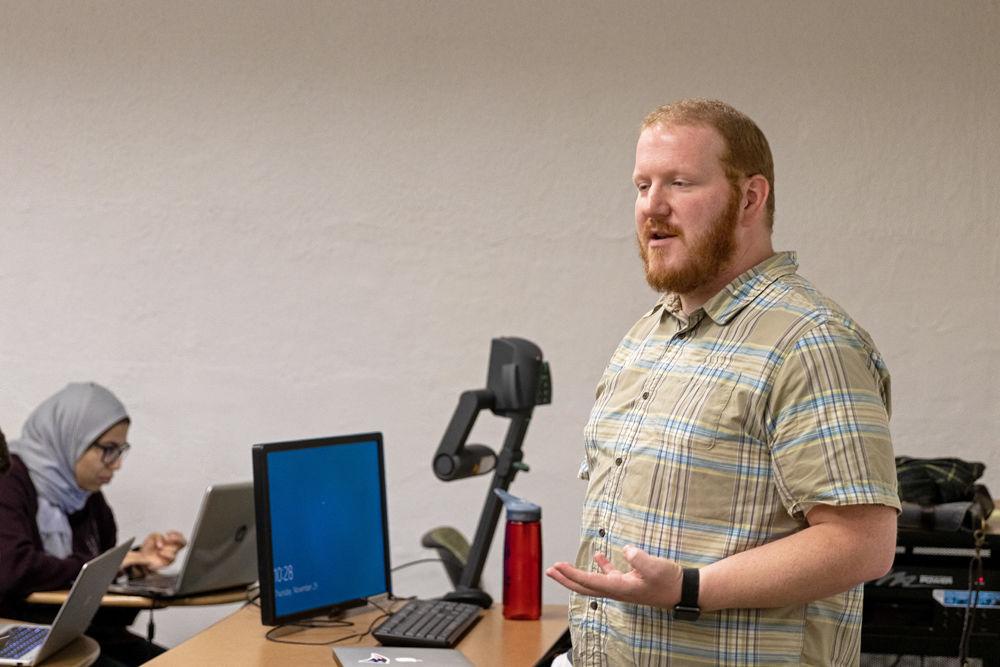First Year Inquiry (FYI) courses, open to first-year undergraduate students during their fall semester, aim to provide smaller, discussion-based sections of GEP requirements by limiting class size.
Sue Carson, director of the FYI program, as well as students and professors within the program provide feedback on the success of FYI courses.
Carson said that most FYI courses are special sections of a regular class, which tend to be more lecture driven due to class size. To register for an FYI course, students should look for a ‘Q’ following the course and section number, as described on the First Year Inquiry Program website.
“It is easier to have more discussions and give more individualized feedback in a smaller class,” Carson said. “A very high percentage of the students say that they are more comfortable approaching their other professors because of their interactions with the professor that they had in this class.”
Navreet Sandhu, first-year in exploratory studies, is currently enrolled in an ENG 101 FYI course. She said that although she did not pay attention to whether or not the ENG 101 course was FYI specifically when registering, she feels that the course has been beneficial to her.
“I really like the small class size,” Sandhu said. “Going into my other classes, there are up to 200 people. It is kind of overwhelming coming from high school with 20 to 30 people in each class. I have certainly gotten closer to my classmates here than I have in my bigger classes.”
Rebecca Walsh, associate professor of English, is teaching the FYI course ENG 266 for the second time this year. Labeled as a U.S. Diversity course within GEP, the course is described as “a survey of American literature from the Civil War to the present.”
“Most of the time, it is discussion based,” Walsh said. “I like to think of it as mini lectures that lead to full class discussions. The students have been really respectful and introspective about how they have had conversations about things that are potentially very charged.”
Sandhu said that she has been able to form relationships with both classmates and her professor thanks to the FYI program.
“Because of the smaller class sizes, you are able to connect more with your professor and actually engage,” Sandhu said. “Whereas if it was a bigger class, they just give a lecture and you’re done.”
Walsh, who has had experience teaching large lecture classes at other institutions, said that the FYI program provides a unique and valuable experience to students.
“I find that in this kind of an environment, the students get to know each other so much better than they would in a larger class,” Walsh said. “For instance, there was a required film that was an adaptation of a play we were reading, and we all had a big pizza party so they were able to see it together instead of alone in the library.”
Carson said that she wishes all courses offered at NC State were structured the same way as FYI courses. She said that the program will soon be expanded to Spring Connect students as well, in hopes of reaching a larger audience with a limited budget.
“I wish more students could experience it,” Walsh said. “It is such a supportive environment for engaged learning. FYI allows for hands-on learning that you get from a small liberal arts college, but in a large university setting. It helps students have the tools to figure out how to get the most out of this really large university. I can’t say enough about how many more resources it deserves.”








